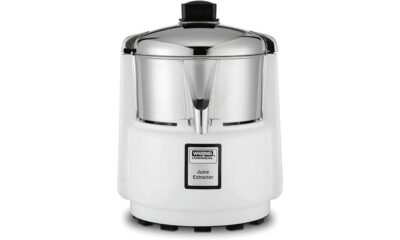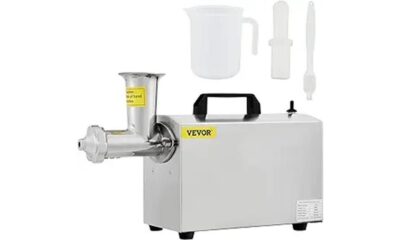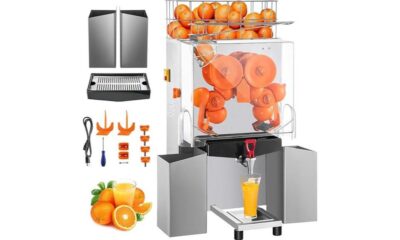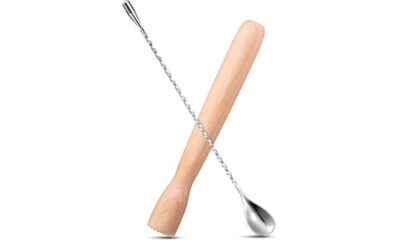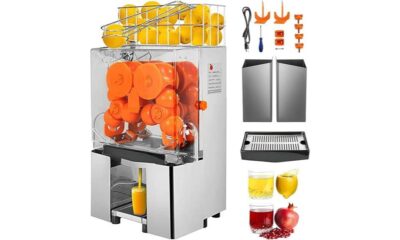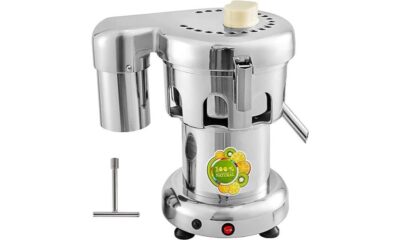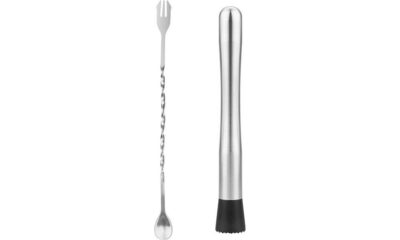Coffee Basics
Wait For The Perk: Coffee After Wisdom Teeth Removal
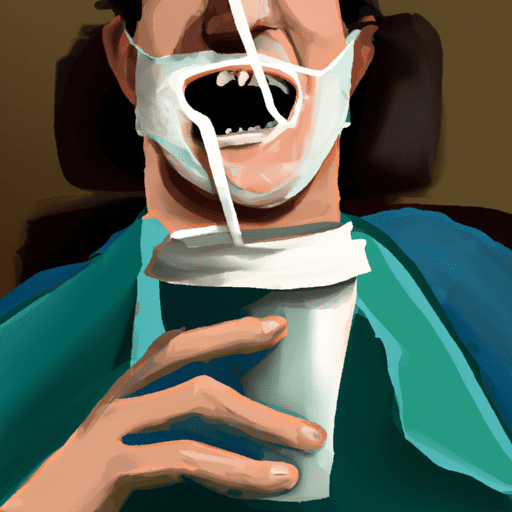
As someone who has just had their wisdom teeth extracted, I empathize with the strong urge to get back to your regular routine quickly. Nevertheless, it’s important to be patient when it comes to drinking coffee after this dental procedure.
While coffee may be a beloved beverage, drinking it too soon after wisdom teeth removal can lead to complications such as dry sockets and hindered wound healing. In this article, I will discuss the importance of waiting before consuming coffee after wisdom teeth removal and provide tips for a smooth recovery.
One of the most common questions patients have after wisdom teeth removal is when they can resume drinking coffee. While it may be tempting to reach for your favorite cup of joe, it is important to understand the risks associated with consuming coffee too soon after this procedure.
Drinking coffee too soon can cause dry sockets, a painful and slow-healing complication that occurs when the blood clot that forms in the socket where the tooth was removed becomes dislodged or dissolves. Additionally, coffee can lead to inflammation and hinder the healing process, making it essential to wait until your body has had time to properly heal before consuming it.
In the following sections, I will explore the timing and risks associated with consuming coffee after wisdom teeth removal, as well as provide personalized advice from a dentist to ensure a smooth recovery.
Key Takeaways
- It is important to wait at least 24-48 hours after wisdom teeth removal before drinking coffee to avoid complications such as slow healing, pain, inflammation, and dry sockets.
- Hot drinks like coffee can increase swelling and cause dry sockets, so it is better to hydrate with water instead.
- Recovery time can vary from person to person and depends on factors such as age, genetics, and following post-op instructions; it is crucial to consult with a dentist before resuming coffee consumption.
- Proper formation of blood clots after extraction is essential for a faster healing process, and it is important to avoid certain habits such as using straws or swishing liquids around the mouth for over a week to prevent dry sockets.
Timing and Risks
I need to wait at least 24-48 hours before drinking coffee after my wisdom teeth removal to avoid risks like slow healing, pain, inflammation, and dry sockets. The timing of resuming coffee consumption is critical to prevent complications that can affect the recovery timeline.
It’s best to opt for caffeine alternatives like water, juice, or smoothies instead of hot coffee to promote healing. Drinking coffee too soon after the procedure can hinder wound healing and prevent blood clots from forming, which can lead to dry sockets. This can cause severe pain and require additional treatment.
It’s essential to wait for the proper formation of blood clots before consuming coffee. Drinking enough water and hydrating the body can aid in recovery and reduce inflammation. It’s important to follow personalized advice from a doctor and avoid online tips that may not be applicable to each case.
Hydration and Inflammation
Staying hydrated with water and other cold liquids is essential to reduce inflammation and aid in the healing process following the extraction of wisdom teeth. Here are some tips to keep in mind for proper hydration and nutrition after the procedure:
- Avoid hot drinks like coffee for at least 24 hours after the surgery to prevent swelling and dry sockets.
- Opt for cold liquids like water, juice, or smoothies instead of hot coffee.
- Drink plenty of water to stay hydrated and flush out bacteria from the mouth.
- Consume nutritious foods like soups, yogurt, and soft fruits to provide essential vitamins and minerals for healing.
It is crucial to avoid caffeine alternatives that can worsen the inflammation or irritation if the surgical site has not healed enough. Caffeine in coffee can restrict blood vessels and impair blood flow to the wound area, delaying healing and increasing the chances of infection. Therefore, it’s best to stick to water and other cold liquids for the first 24-48 hours after wisdom teeth removal.
By staying hydrated and consuming nutritious foods, you can help your body heal faster and avoid complications.
Factors Affecting Recovery
Interestingly, recovery time after wisdom teeth extraction can vary depending on several factors. Age and genetics can play a role in how quickly someone heals. Additionally, the complexity of the procedure can also impact recovery time.
Easy extractions may only require a few days of rest and recovery, while more difficult procedures may take several weeks. It’s important to follow post-operative instructions provided by the dentist to ensure proper healing and to avoid complications.
Pain management is also a factor in the recovery process. While pain is expected after wisdom teeth removal, it should be manageable with the prescribed pain medication. If the pain becomes severe or is not improving, it’s important to contact the dentist for further evaluation.
Additionally, dietary restrictions may also play a role in recovery. Eating soft foods and avoiding hard or crunchy foods can help prevent irritation or damage to the surgical site. It’s important to follow any dietary guidelines provided by the dentist to ensure proper healing and to avoid complications.
Personalized Advice from Dentist
Consulting with your dentist is crucial for receiving personalized advice on how to properly care for your mouth after the wisdom teeth extraction procedure. Every patient is unique, and factors such as age, genetics, and the complexity of the procedure can affect the recovery time.
Your dentist can provide detailed post-op instructions, including when it’s safe to resume your coffee consumption. During your consultation, they may also offer tips on how to reduce pain and inflammation, prevent infection, and promote healing. They may advise you to avoid hot drinks like coffee for at least 24-48 hours after the surgery to prevent complications such as dry sockets.
Additionally, they may recommend drinking cold liquids like water or juice instead of coffee to help with hydration and reduce swelling. By following personalized advice from your dentist, you can ensure that you have a smooth recovery and avoid any potential complications.
Preventing Complications
As I’m recovering from my wisdom teeth extraction, I’m fully aware of the risks that come with drinking coffee too soon after the procedure.
One of the most significant complications is the development of dry sockets, a painful condition that occurs when the blood clot that forms in the socket after the tooth extraction dislodges or dissolves prematurely.
To prevent this from happening, I’m strictly following my dentist’s instructions, which include avoiding hot drinks like coffee for at least 24 hours after the surgery.
Another precaution I’m taking is to limit my caffeine intake after the procedure. Caffeine’s a stimulant that can restrict blood vessels and impair blood flow to the wound area, delaying healing and increasing the risk of infection.
To prevent this from happening, I’m opting for cold liquids like water, juice, or smoothies instead of hot coffee. I’m also mindful of adding milk or sugar to my coffee, as these can hinder the formation of blood clots and slow down the healing process.
By taking these extra precautions, I’m confident that I can prevent any complications and achieve a smooth recovery.
Frequently Asked Questions
Can I drink decaf coffee after wisdom teeth removal?
Yes, I can drink decaf alternatives after wisdom teeth removal. It’s important to stay hydrated post-op, but hot drinks like coffee can slow down healing. Opting for decaf alternatives or cold liquids like water, juice, or smoothies is recommended.
How long do I have to wait to brush my teeth after wisdom teeth removal?
Gently rinsing with salt water can begin 24 hours after wisdom teeth removal. Post op oral care is vital to prevent potential complications like infection or dry sockets. Follow dentist instructions to ensure proper healing.
Can I use a straw after wisdom teeth removal?
Using sipping straws after wisdom teeth removal can dislodge blood clots and result in dry sockets, which can prolong recovery time. It is best to avoid straws for at least a week after the procedure.
Can I eat spicy foods after wisdom teeth removal?
I was surprised to learn that over 5 million Americans have their wisdom teeth removed each year. While it’s important to avoid spicy foods, there are plenty of soft food alternatives like mashed potatoes and smoothies to choose from during the recommended 3-5 day soft food diet.
Is it okay to drink alcohol after wisdom teeth removal?
I advise against alcohol consumption after wisdom teeth removal as it can prolong recovery time and increase the risk of bleeding and infection. It is important to follow post-operative instructions and avoid anything that may impede healing.
Arf, an author and an innovative enthusiast of coffee, coffee alternatives, and tea, plays a crucial role as a contributor to the esteemed Cappuccino Oracle platform. Renowned for his curiosity and passion for these captivating beverages, Arf has carved out a unique space for himself in the world of exploration and writing. He realized that coffee, coffee alternatives, and tea are not mere drinks to keep one awake, but universes of flavors and stories waiting to be explored.
Arf’s articles for Cappuccino Oracle blend meticulous research with personal experiences, providing readers with an in-depth understanding of various types of coffee, coffee alternatives, and tea, along with their unique characteristics, cultures, and histories. His honest reviews and engaging narratives guide readers on their own journeys, helping them discover their preferences and find their perfect brew.
Coffee Basics
How Many Tablespoons of Coffee French Press

Have you ever thought about how many tablespoons of coffee you should use in a French press? Don’t worry, we’ve got you covered! In this article, we’ll discuss the significance of the coffee-to-water ratio and assist you in finding the perfect strength for your brew.
We’ll also provide you with the standard measurement for a French press and tips on how to adjust it to your personal preference.
Get ready to make consistently delicious French press coffee with our expert advice!
Key Takeaways
- Accurate measurement of coffee is crucial for desired strength and flavor in a French Press.
- The ideal coffee-to-water ratio for a French Press is generally considered to be 1:15 or 1:16.
- Adjust the amount of coffee grounds used to achieve the desired strength of the coffee.
- Experiment with different bean varieties and brewing techniques to achieve a well-balanced and flavorful cup of French Press coffee.
Importance of Coffee-to-Water Ratio
To achieve the perfect cup of French press coffee, we must emphasize the importance of the coffee-to-water ratio. Measuring coffee accurately is crucial in order to achieve the desired strength and flavor. Too little coffee and the brew will be weak and bland, while too much coffee will result in a bitter and overpowering taste. The ideal ratio is generally considered to be 1:15 or 1:16, meaning one part coffee to fifteen or sixteen parts water. However, personal preferences may vary, and some people prefer a stronger or weaker brew.
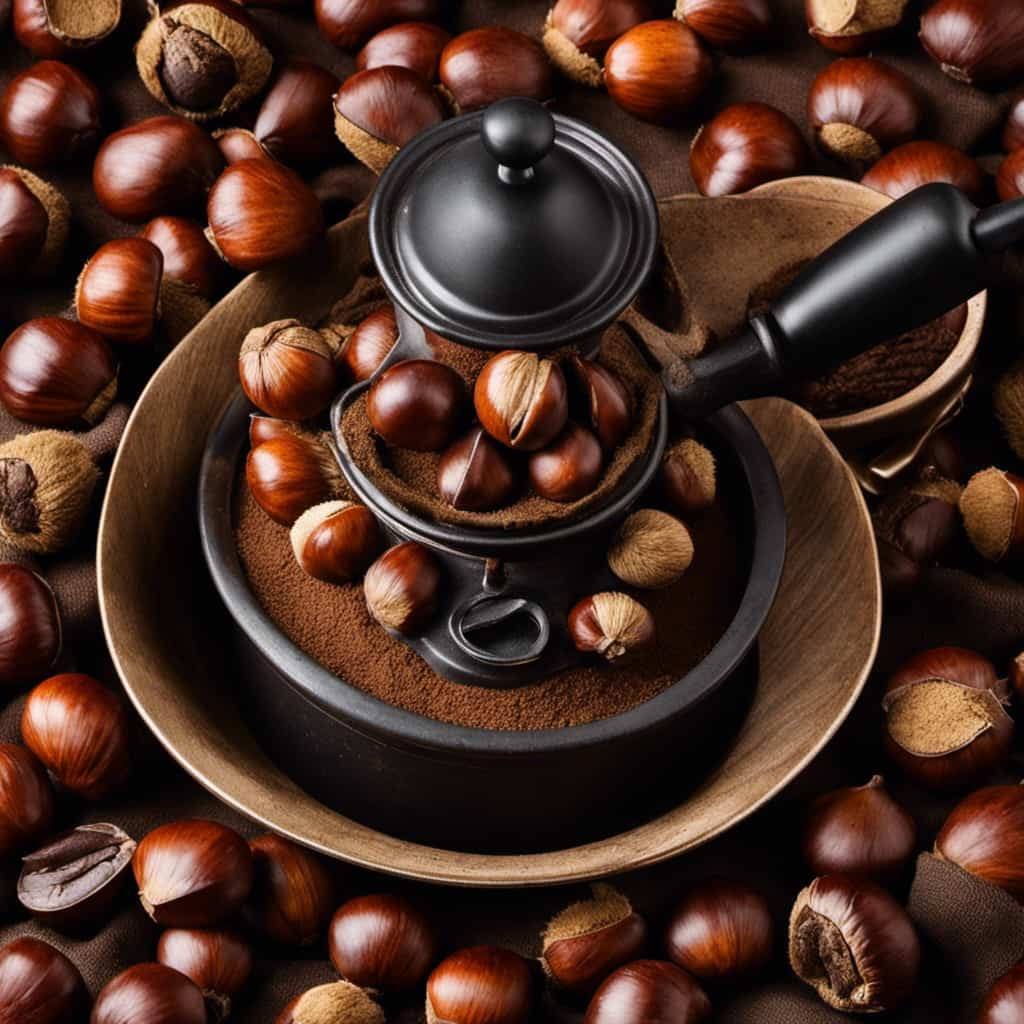
Additionally, the impact of water temperature on coffee taste can’t be overlooked. Water that’s too hot can result in a bitter and burnt flavor, while water that’s too cold may not extract the full flavor profile of the coffee.
Transitioning into the subsequent section about determining the ideal strength of your coffee, it’s important to consider the coffee-to-water ratio as a key factor in achieving the perfect cup.
Determining the Ideal Strength of Your Coffee
We determine the ideal strength of our coffee by experimenting with different coffee-to-water ratios and adjusting the amount of coffee grounds we use in our French press. Brewing techniques play a crucial role in achieving the perfect balance of flavors.
To determine the ideal strength, we start by experimenting with different ratios, such as 1:15 or 1:16, which means using 1 part coffee to 15 or 16 parts water, respectively. We also pay attention to the size and freshness of the coffee grounds.

Experimenting with different coffee beans can also help us achieve the desired strength. Some beans may produce a stronger brew, while others may result in a milder flavor.
The Standard Measurement for a French Press
For our French press brewing method, the standard measurement is to use a ratio of coffee grounds to water that yields the ideal strength of the brew. This ensures that every cup of coffee is flavorful and satisfying.
Here is the standard measurement for a French press:
- Use a coffee to water ratio of 1:15. This means for every 1 gram of coffee grounds, you’ll need 15 grams of water.
- For a 16-ounce French press, you’ll need about 55 grams of coffee grounds and 825 grams of water.
- For a 32-ounce French press, you’ll need about 110 grams of coffee grounds and 1650 grams of water.
By following this standard measurement, you’ll be able to achieve a well-balanced and delicious cup of coffee every time.

Adjusting Coffee-to-Water Ratio for Personal Preference
When adjusting the coffee-to-water ratio for personal preference, it’s important to experiment with different measurements. Start by altering the amount of coffee grounds and water used in your French press. For a stronger cup of coffee, increase the amount of coffee grounds, and for a milder flavor, decrease the amount.
Additionally, adjusting the brewing time can also affect the strength of your coffee. Experiment with shorter or longer brewing times to find your desired taste.
Another aspect to consider is the type of coffee beans used. Different beans have varying levels of intensity and flavor profiles, so try experimenting with different coffee beans to find the perfect match for your taste buds.
By adjusting these variables, you can create a custom coffee experience tailored to your personal preference.
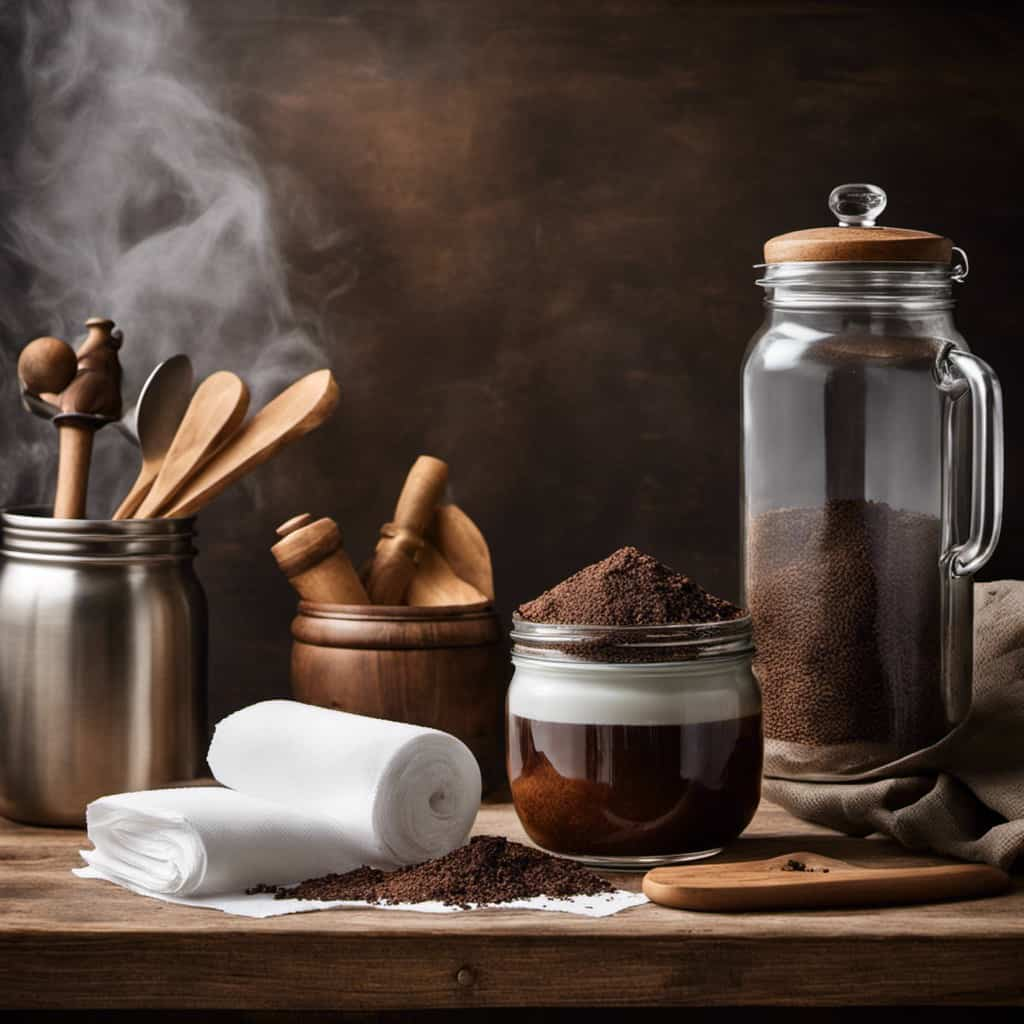
Now, let’s move on to the next section where we’ll discuss some tips for consistently delicious French press coffee.
Tips for Consistently Delicious French Press Coffee
Continuing the exploration of achieving the perfect cup of French press coffee, let’s now delve into some practical tips to consistently brew a delicious and satisfying brew.
- Brewing Techniques:
- Water Temperature: Start by heating water to around 200°F (93°C), as this helps extract the coffee’s flavors. Avoid boiling water, as it can scorch the beans.
- Steeping Time: Let the coffee steep for about 4 minutes. This allows the flavors to fully develop and ensures a robust and balanced cup of coffee.
- Selecting the Right Coffee Beans:
- Freshness: Opt for freshly roasted beans. Look for a roast date within the past two weeks to ensure optimal flavor.
- Bean Variety: Experiment with different bean varieties to find the flavor profile you enjoy. Whether it’s a bold, dark roast or a fruity and bright light roast, the choice is yours.
Frequently Asked Questions
What Is the Ideal Brewing Time for French Press Coffee?
To achieve a strong flavor in French press coffee, the ideal brewing time is around 4 minutes. It’s important to maintain the ideal brewing temperature, which is around 195-205°F.
Can I Use Pre-Ground Coffee in a French Press?
Can we use pre-ground coffee in a French press? Let’s weigh the pros and cons. Using pre-ground coffee is convenient, but it may lack freshness and result in a weaker flavor compared to whole beans.

How Do I Clean a French Press Properly?
To clean a French press properly, we recommend disassembling it and rinsing off any remaining coffee grounds. Then, scrub the components with warm, soapy water to remove any coffee stains. Allow them to air dry before reassembling.
Can I Use a French Press to Make Cold Brew Coffee?
Sure! When making cold brew in a French press, we typically use a higher ratio of coffee to water, like 1:4 or 1:5. The brewing temperature should be room temperature or cold, and the steeping time can range from 12 to 24 hours.
Does the Type of Water Used Affect the Taste of French Press Coffee?
The type of water used can greatly affect the taste of French press coffee. Hard water can give the coffee a mineral-like flavor, while soft water can result in a more balanced and smooth taste.
Conclusion
So there you have it, folks! The secret to a perfect cup of French press coffee lies in the precise measurement of coffee-to-water ratio.

Remember, it’s not just about the amount of tablespoons you use, but also the strength of your brew. Adjust it according to your personal preference and never settle for mediocre coffee again.
Now go forth and conquer your mornings with consistently delicious French press coffee.
Cheers!
Justin is a seasoned author, coffee and tea enthusiast, and an essential member of the Cappuccino Oracle team. With a keen appreciation for the complexities of coffee, coffee alternatives, and tea, Justin has dedicated his professional career to exploring these realms and sharing his insights with readers worldwide.
Justin’s immersion in the world of coffee, coffee alternatives, and tea began at a young age, kindling a passion that extended beyond mere consumption. This love for these beverages led him to combine his talent for writing with his devotion to coffee and tea, bringing him to Cappuccino Oracle as a dedicated author.
Coffee Basics
How Many Tablespoons of Coffee for French Press

Let’s brainstorm some discussion topics:
- How does using instant coffee in a french press affect the overall taste and quality of the coffee?
- Are there any tips or techniques to enhance the flavor when using instant coffee in a french press?
Are you tired of guessing how much coffee to use for your French press? Look no further! We’ve got you covered with our expert advice on the perfect coffee-to-water ratio.
Say goodbye to weak or overpowering brews, and say hello to consistently delicious French press coffee.
With our tips and tricks, you’ll be able to serve up the perfect cup every single time. So grab your favorite mug and get ready to elevate your coffee game!
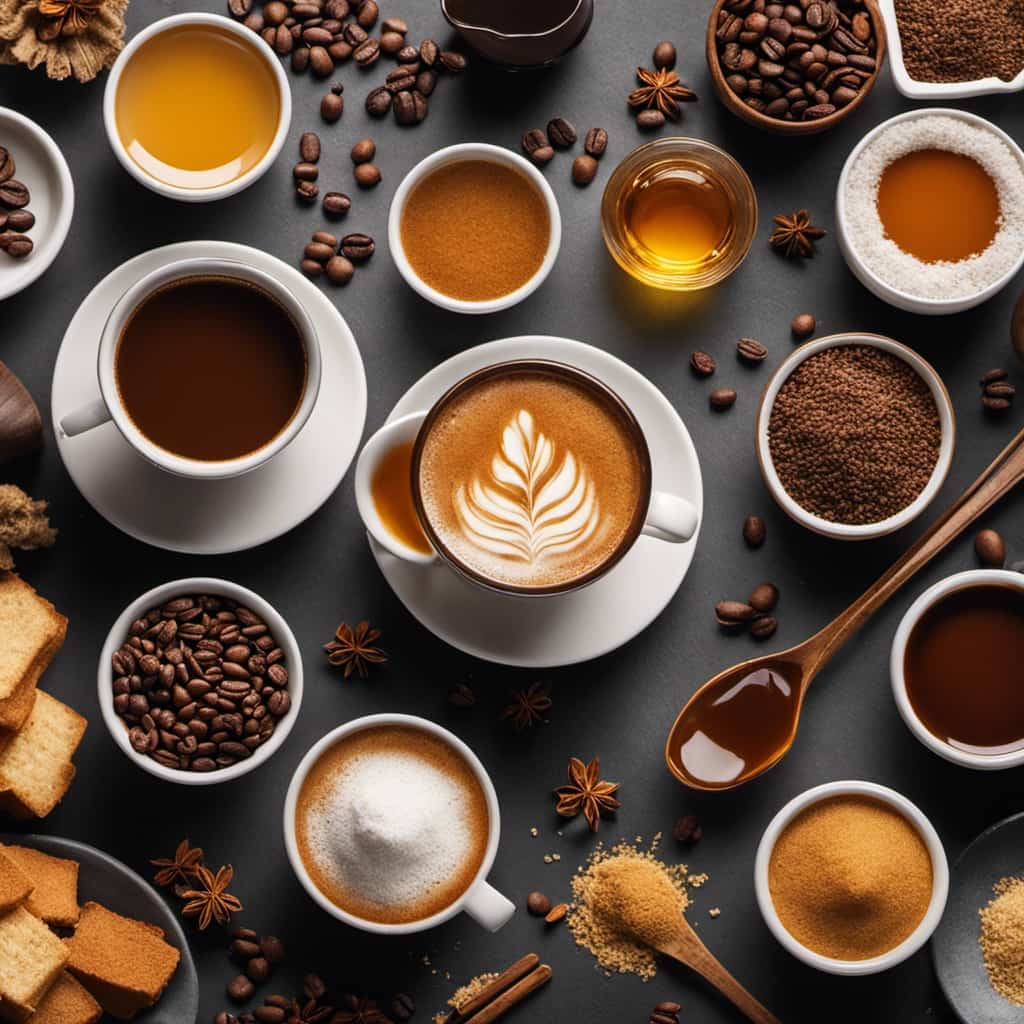
Key Takeaways
- The ideal coffee-to-water ratio for French press coffee is generally 1:15, but some prefer a stronger brew with a 1:12 ratio.
- Adjusting brewing time and grind size can help achieve the desired coffee strength.
- Consider the capacity of the French press when adjusting coffee measurements.
- Factors such as coffee bean selection, grind size, water temperature, and brewing time all impact the flavor of French press coffee.
Understanding the Coffee-to-Water Ratio
To achieve the perfect brew in a French press, we must understand the optimal coffee-to-water ratio. The coffee-to-water ratio is crucial in determining the strength and flavor of the final cup.
The ideal ratio is generally considered to be 1:15, which means using 1 gram of coffee for every 15 grams of water. However, some prefer a stronger brew and may opt for a 1:12 ratio.
It’s important to note that the coffee extraction process is influenced by the coffee-to-water ratio. If the ratio is too high, the coffee may become over-extracted, resulting in a bitter taste. Conversely, if the ratio is too low, the coffee may be under-extracted, lacking in flavor.
Experimenting with different brewing techniques and adjusting the coffee-to-water ratio can help you find your perfect cup. Remember, it’s all about finding the balance that suits your taste preferences.

Determining the Ideal Coffee Strength
For determining the ideal coffee strength, we rely on the ratio of coffee to water in our French press. This ratio determines the concentration and flavor of the brewed coffee. To achieve the perfect balance, it is essential to experiment with different brewing times and grind sizes.
In order to help you understand the impact of these variables, let’s take a look at the following table:
| Brewing Time | Grind Size | Coffee Strength |
|---|---|---|
| 3 minutes | Coarse | Mild |
| 4 minutes | Medium | Medium |
| 5 minutes | Fine | Strong |
By adjusting the brewing time, you can control the coffee extraction. Longer brewing times extract more flavor and strength from the coffee grounds, while shorter times produce a milder cup. Additionally, experimenting with different grind sizes can further enhance or mellow the coffee’s strength. Coarse grinds result in a lighter brew, while fine grinds yield a bolder one.
Adjusting Coffee Measurements for Different French Press Sizes
When adjusting coffee measurements for different French press sizes, it’s important to consider the capacity of the French press and the desired coffee-to-water ratio.

The size of the French press can vary, with options ranging from 8 ounces to 34 ounces or more. A larger French press will require more coffee grounds to achieve the desired strength and flavor.
Additionally, the brewing time and coffee flavor can vary depending on the size of the French press. A smaller French press may require a shorter brewing time to avoid over-extraction, resulting in a stronger and more bitter taste. On the other hand, a larger French press may require a longer brewing time to extract enough flavor from the coffee grounds.
Understanding these differences in French press size comparison and the impact on brewing time and coffee flavor variation is crucial when adjusting coffee measurements.
Now let’s explore the factors to consider when choosing the number of tablespoons.

Factors to Consider When Choosing the Number of Tablespoons
We need to consider several factors when determining the appropriate number of tablespoons for the French press.
One crucial factor is coffee bean selection. Different coffee beans have varying levels of density and flavor profiles, which can affect the strength and taste of your brew. Lighter roasted beans may require more tablespoons to achieve a robust flavor, while darker roasted beans may need fewer tablespoons.
Another factor to consider is the grinding consistency. The grind size affects the extraction rate and overall flavor of the coffee. Finely ground coffee will extract more quickly and may require fewer tablespoons, while coarsely ground coffee will extract more slowly and may require more tablespoons.
By taking into account these factors, you can ensure the perfect number of tablespoons for your French press.

Now, let’s dive into some expert tips for consistently delicious French press coffee.
Expert Tips for Consistently Delicious French Press Coffee
To consistently achieve delicious French press coffee, we recommend utilizing a double preposition and following these expert tips. First, ensure you are using freshly ground coffee beans. Grinding coffee just before brewing helps to preserve its flavors and aromas. Experiment with different grind sizes to find the one that suits your taste preferences best. Second, pay attention to the brewing time. Steeping the coffee for too long can result in a bitter taste, while a short brewing time may lead to a weak flavor. Start with a brewing time of four minutes and adjust according to your desired strength. Finally, make sure to clean your French press thoroughly after each use to prevent any unwanted flavors from lingering. Following these tips will help you consistently serve delicious French press coffee.
| Expert Tips for Consistently Delicious French Press Coffee |
|---|
| – Use freshly ground coffee beans |
| – Experiment with different grind sizes |
| – Pay attention to the brewing time |
| – Clean your French press regularly |
Frequently Asked Questions
Can I Use Instant Coffee in a French Press?
Using instant coffee in a french press may affect the taste and flavor of the coffee, but it is possible to do so. We recommend experimenting with the amount of coffee and brewing time to find the perfect balance for your preference.
How Long Should I Let the Coffee Steep in a French Press?
Steeping time in a French press affects the flavor of coffee. Longer steeping time can result in a stronger and more intense flavor, while shorter steeping time may yield a milder taste. The choice depends on personal preference and desired coffee strength.
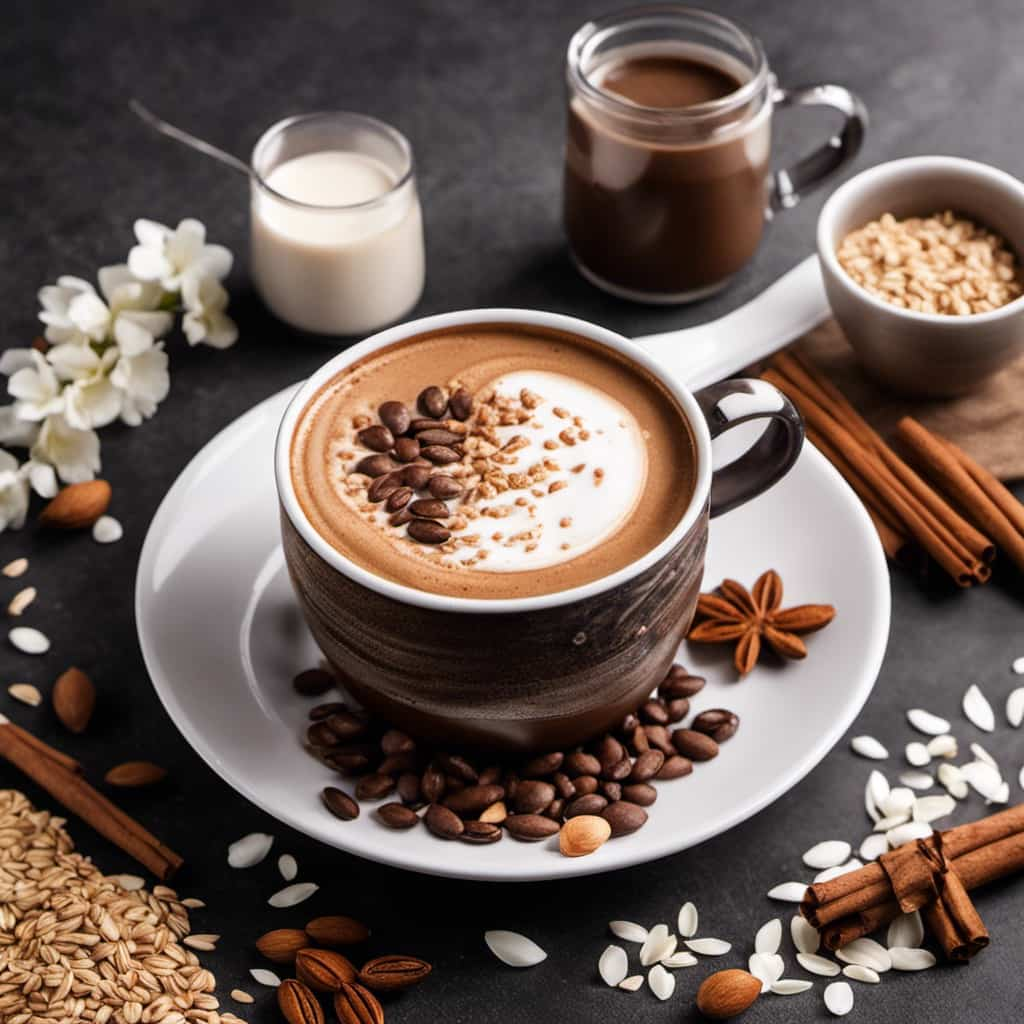
Is It Necessary to Preheat the French Press Before Brewing?
Preheating the French press is not necessary, but it has its benefits. It helps maintain the temperature for longer, resulting in a better brew. Alternatively, you can warm the press by filling it with hot water and letting it sit for a few minutes.
Can I Reuse Coffee Grounds in a French Press?
Yes, you can reuse coffee grounds in a French press. It’s a great way to reduce waste and save money. Reusing grounds can impart a milder flavor to subsequent brews, giving you a different coffee experience each time.
What’s the Best Way to Clean a French Press After Use?
To clean a French press, the best method involves a few simple cleaning steps. First, disassemble the press and remove any leftover coffee grounds. Then, wash all the components with warm soapy water, making sure to remove any residue. Finally, rinse and dry thoroughly before reassembling.
Conclusion
In conclusion, when using a French press, the ideal coffee-to-water ratio is 1:15. This means using one tablespoon of coffee for every 15 tablespoons of water. However, if you prefer a stronger or weaker coffee, you can adjust the number of tablespoons accordingly.
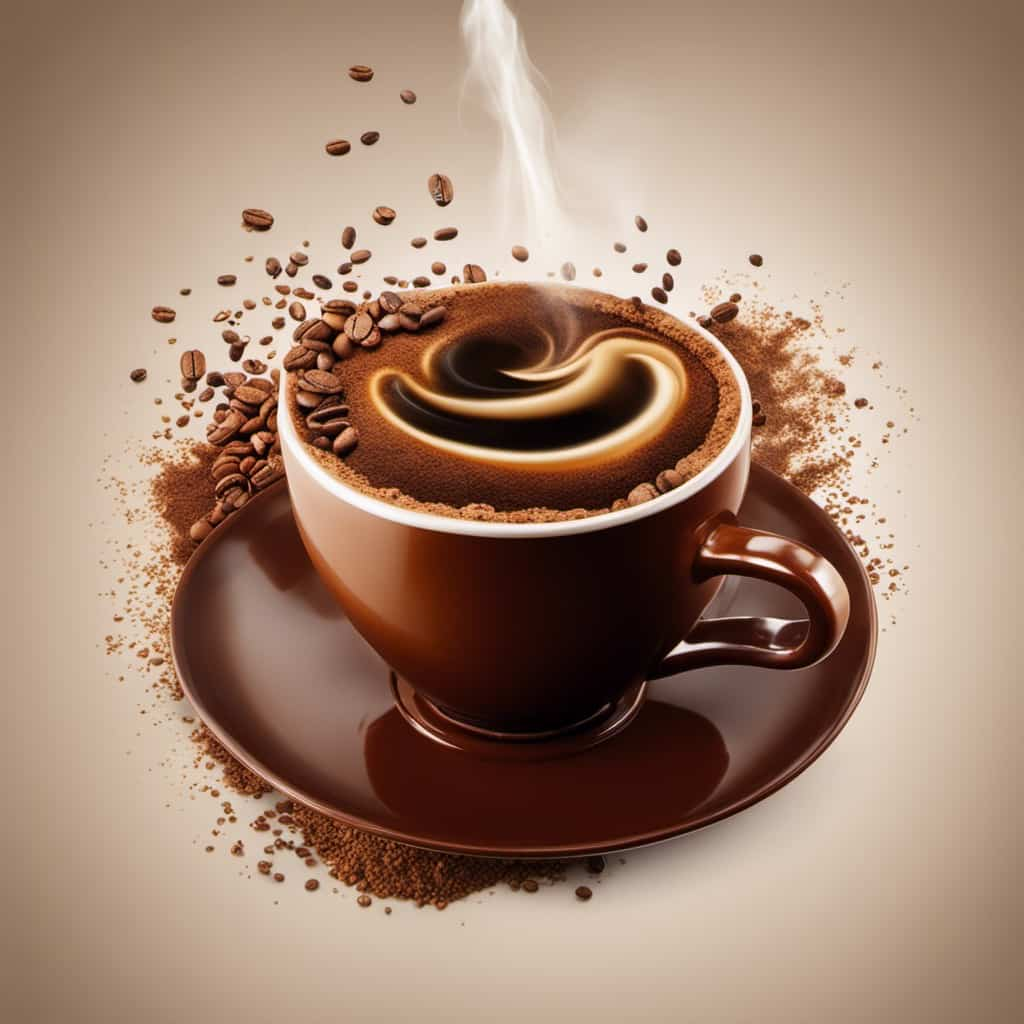
It’s important to consider the size of your French press and the desired strength of your brew when determining the amount of coffee to use. By following these guidelines, you can consistently enjoy a delicious cup of French press coffee.
Justin is a seasoned author, coffee and tea enthusiast, and an essential member of the Cappuccino Oracle team. With a keen appreciation for the complexities of coffee, coffee alternatives, and tea, Justin has dedicated his professional career to exploring these realms and sharing his insights with readers worldwide.
Justin’s immersion in the world of coffee, coffee alternatives, and tea began at a young age, kindling a passion that extended beyond mere consumption. This love for these beverages led him to combine his talent for writing with his devotion to coffee and tea, bringing him to Cappuccino Oracle as a dedicated author.
Coffee Basics
How Many Ounces in a 12 Cup Pot of Coffee
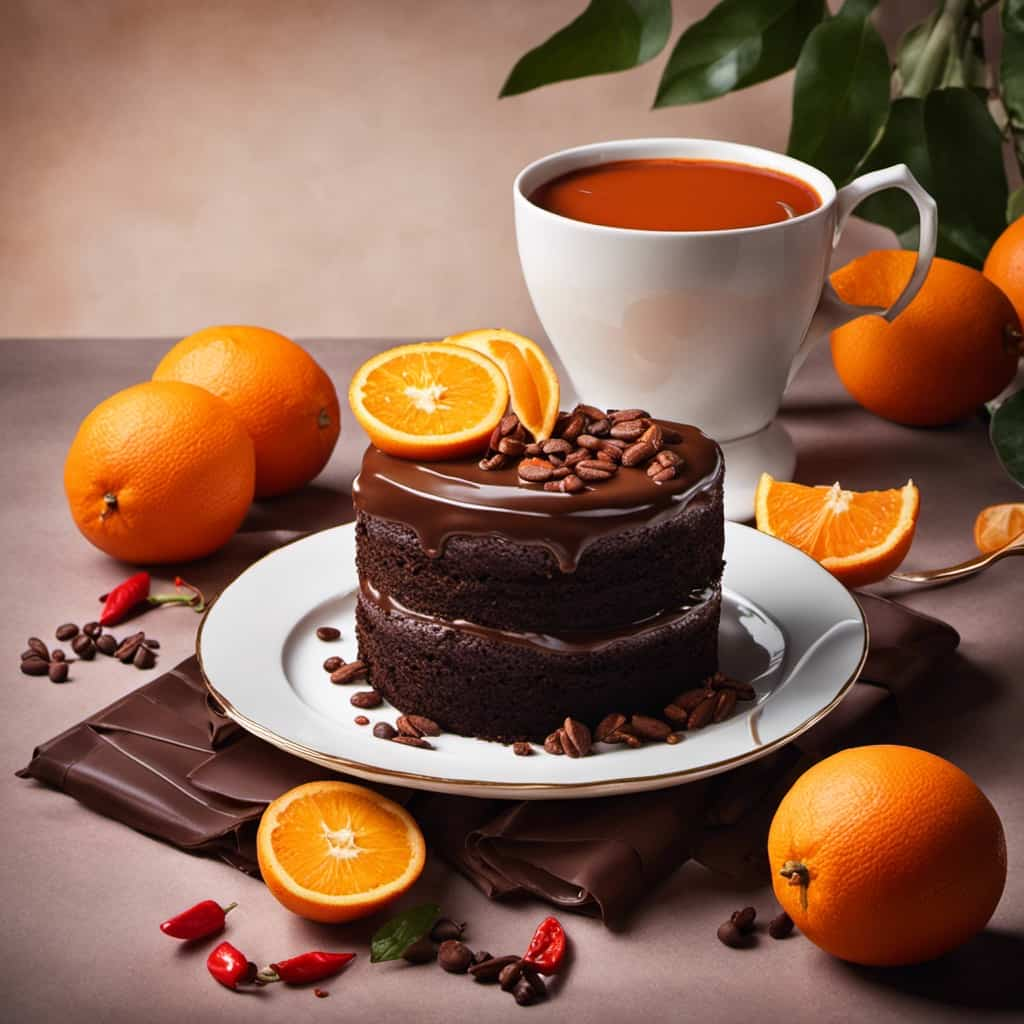
A delightful blend of flavors and aromas that awaken our senses is discovered at the core of a steaming cup of coffee.
But have you ever wondered how many ounces are in that 12-cup pot?
In this article, we will explore the answer to this question, breaking down the calculations and factors that can affect the final volume.
So grab your favorite mug, and let’s dive into the world of coffee measurements together.

Key Takeaways
- Coffee cup sizes can vary, but the most common sizes are 8, 12, and 16 ounces.
- To determine the number of ounces in a 12-cup pot, multiply the number of cups by the volume of each cup.
- Factors such as brewing method, grind size, and coffee-to-water ratio can affect the final volume of a 12-cup pot.
- Understanding coffee cup sizes and measurements is important for accurate measurement and brewing the perfect 12-cup pot of coffee.
Understanding Coffee Cup Sizes
Let’s delve into the topic of coffee cup sizes and understand the variations in ounces they hold. When it comes to coffee cup capacity, it’s essential to know the amount of liquid they can hold. This knowledge is crucial for measuring coffee grounds accurately.
Coffee cup sizes can vary, but the most common sizes are 8, 12, and 16 ounces. These sizes cater to different preferences and needs, whether you prefer a smaller, more concentrated cup or a larger, more indulgent one. Understanding the capacity of each cup allows you to adjust the amount of coffee grounds accordingly, ensuring a well-balanced and flavorful cup of coffee.
Now that we’ve discussed coffee cup sizes, let’s move on to the standard measurement for coffee cups.
The Standard Measurement for Coffee Cups
The standard measurement for coffee cups is typically based on a 6-ounce serving size. This is important to know because it helps us understand how much coffee we’re consuming and how many servings we can expect from a particular pot of coffee.

Here are four key points about coffee cup capacity and how it relates to different coffee brewing methods:
- Drip coffee makers: These machines often have a standard coffee cup capacity of 6 ounces per cup. This means that if you use a 12-cup coffee maker, you can expect to brew a total of 72 ounces of coffee.
- French press: The standard measurement for a coffee cup in a French press is also 6 ounces. So, if you brew a 12-cup pot of coffee using this method, you’ll have 72 ounces of coffee.
- Espresso shots: In the world of espresso, a standard shot is about 1 ounce. Therefore, a 6-ounce coffee cup would equate to about 6 shots of espresso.
- Single-serve coffee makers: These machines often have a range of cup sizes, but a common size is around 8 ounces. Keep this in mind when brewing coffee using a single-serve machine.
Understanding the standard measurement for coffee cups is crucial when calculating the ounces in a 12-cup pot. It allows us to determine how much coffee we’ll have to enjoy and share with others.
Calculating the Ounces in a 12-Cup Pot
To determine the number of ounces in a 12-cup pot of coffee, we can calculate based on the standard coffee cup measurement of 6 ounces. Since there are 12 cups in the pot, we can multiply the number of cups by the volume of each cup to find the total volume.
In this case, 12 cups multiplied by 6 ounces equals 72 ounces. So, a 12-cup pot of coffee contains 72 ounces.

This calculation allows us to convert cups to ounces, providing a clear and precise measurement for those who desire to serve others. By understanding the relationship between cups and ounces, we can ensure that we’re accurately measuring the volume of coffee in a 12-cup pot.
Factors That Can Affect the Final Volume
Factors such as brewing method, grind size, and coffee-to-water ratio can significantly impact the final volume of a 12-cup pot of coffee. Understanding these brewing variables and their impact on coffee volume is crucial for achieving the perfect brew.
Here are four key factors to consider:
- Brewing Method: Different brewing methods, such as drip brewing or French press, can yield different volumes of coffee due to variations in extraction efficiency and water retention.
- Grind Size: The size of the coffee grounds affects the rate of extraction. Finer grinds tend to result in a higher extraction rate, which can lead to a smaller final volume.
- Coffee-to-Water Ratio: The amount of coffee used relative to water affects the strength and volume of the brew. Using more coffee can result in a stronger flavor but may also reduce the final volume.
- Water Loss: During the brewing process, some water is lost as steam or absorbed by the coffee grounds. This loss can contribute to a decrease in the final volume.
Tips for Brewing the Perfect 12-Cup Pot of Coffee
For the perfect 12-cup pot of coffee, we recommend utilizing a coffee maker with a programmable timer. This allows you to wake up to the aroma of freshly brewed coffee.
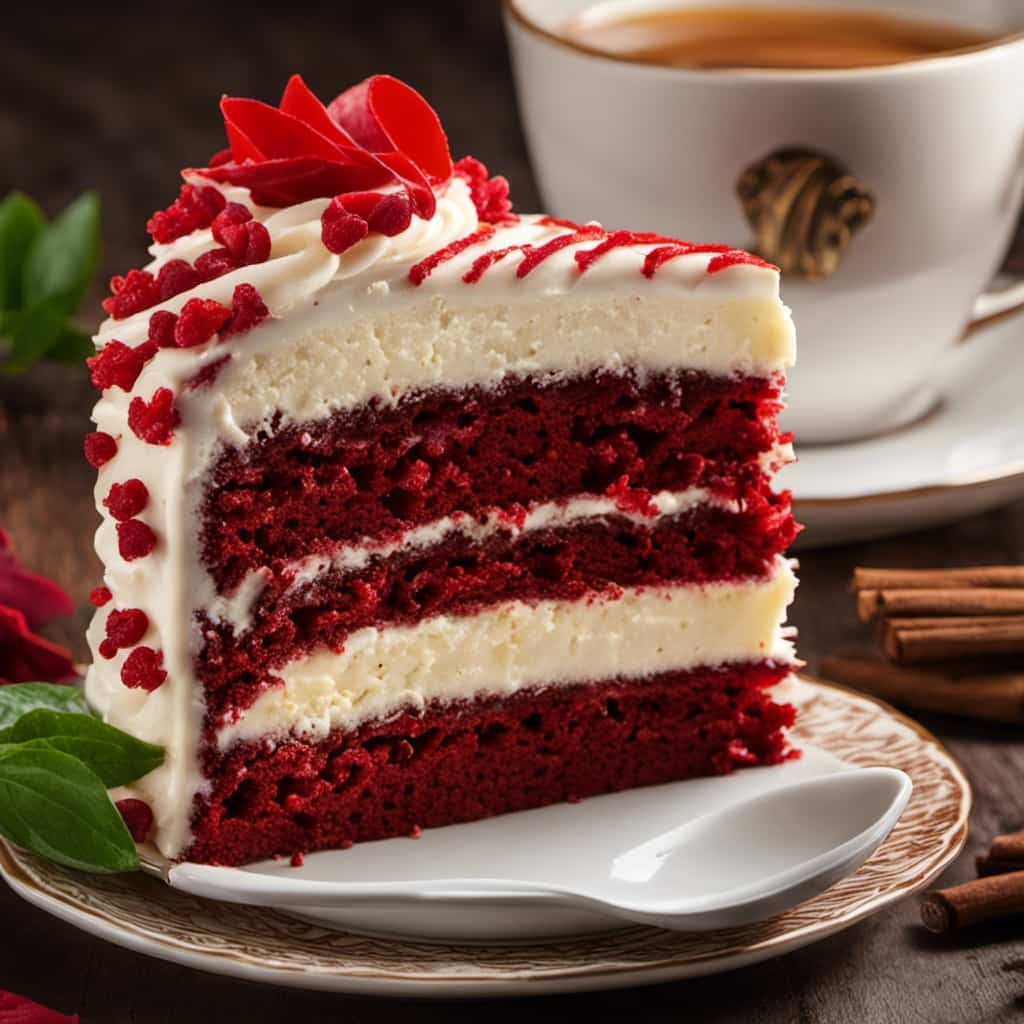
When it comes to brewing techniques, start by selecting the right coffee beans. Look for beans that are freshly roasted and have a strong aroma. Grind the beans just before brewing to preserve their flavor. Use a medium grind size for a drip coffee maker.
For a 12-cup pot, you’ll need about 1.5 ounces of coffee grounds. The water-to-coffee ratio should be around 15:1, so use about 18 ounces of water. Make sure the water temperature is between 195°F and 205°F for optimal extraction.
Frequently Asked Questions
What Is the Difference Between Coffee Cup Sizes and Standard Measurement for Coffee Cups?
Coffee cup sizes can be confusing due to common misconceptions about standard measurement. Understanding the difference between coffee cup sizes and standard measurements is crucial in accurately determining the amount of coffee in a pot.
How Can I Calculate the Ounces in a 12-Cup Pot of Coffee if I Have a Different Size of Coffee Cup?
To calculate the ounces in a 12-cup pot of coffee, you need to consider the size of your coffee cup. Different cup sizes can affect the final measurement, so it’s important to adjust accordingly.

Are There Any Factors That Can Affect the Final Volume of Coffee Brewed in a 12-Cup Pot?
Factors affecting coffee volume in a 12-cup pot include the grind size, water temperature, brewing time, and coffee-to-water ratio. Techniques for brewing perfect coffee involve adjusting these factors to achieve the desired taste and volume.
Can I Use a Different Brewing Technique to Achieve the Perfect 12-Cup Pot of Coffee?
When it comes to achieving the perfect 12-cup pot of coffee, there’s no shortage of options. Experiment with different brewing methods and alternative coffee measurements to find your own secret recipe.
Are There Any Tips for Adjusting the Strength or Flavor of a 12-Cup Pot of Coffee?
When it comes to adjusting the strength or flavor of a 12-cup pot of coffee, there are a few tips we can share. By experimenting with brewing techniques, you can achieve the perfect cup every time.
Conclusion
Brewing a 12-cup pot of coffee is no small feat. With each cup containing approximately 6 ounces, that’s a whopping 72 ounces of liquid gold ready to fuel your day.

But it’s not just about the quantity; it’s about the precision and knowledge required to achieve the perfect brew.
So grab your favorite mug and savor every sip of this impressive, flavorful concoction that will keep you buzzing all day long.
Justin is a seasoned author, coffee and tea enthusiast, and an essential member of the Cappuccino Oracle team. With a keen appreciation for the complexities of coffee, coffee alternatives, and tea, Justin has dedicated his professional career to exploring these realms and sharing his insights with readers worldwide.
Justin’s immersion in the world of coffee, coffee alternatives, and tea began at a young age, kindling a passion that extended beyond mere consumption. This love for these beverages led him to combine his talent for writing with his devotion to coffee and tea, bringing him to Cappuccino Oracle as a dedicated author.
-
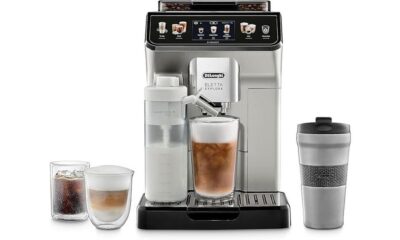
 Espresso Machines Reviews2 weeks ago
Espresso Machines Reviews2 weeks agoDeLonghi Eletta Explore: A Comprehensive Review [2025]
-

 Espresso Machines Reviews3 weeks ago
Espresso Machines Reviews3 weeks agoILAVIE 20 Bar Espresso Machine Review (2025)
-

 Espresso Machines Reviews3 weeks ago
Espresso Machines Reviews3 weeks agoSUMSATY Espresso Machine Review (2025)
-
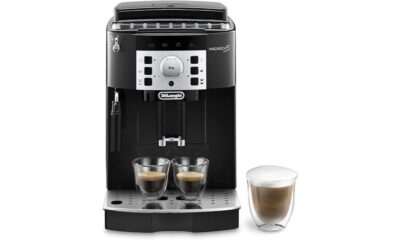
 Espresso Machines Reviews2 weeks ago
Espresso Machines Reviews2 weeks agoDeLonghi Magnifica S ECAM22.110.B Review: A Coffee Lover's Dream [2025]
-
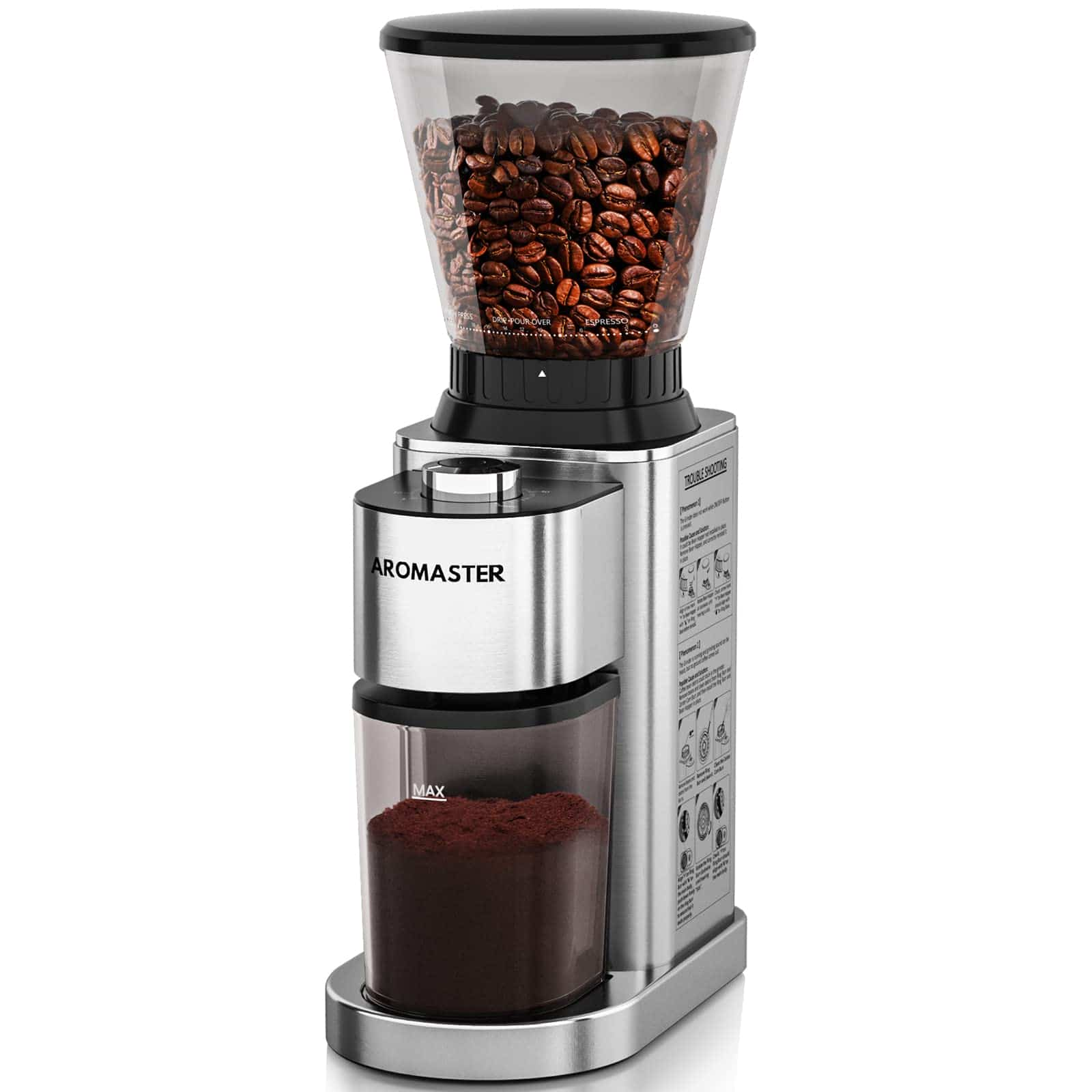
 Coffee Grinders Reviews3 weeks ago
Coffee Grinders Reviews3 weeks agoAromaster Burr Coffee Grinder Review (2025)
-

 Espresso Machines Reviews3 weeks ago
Espresso Machines Reviews3 weeks agoMAttinata Espresso Machine Review (2025)
-
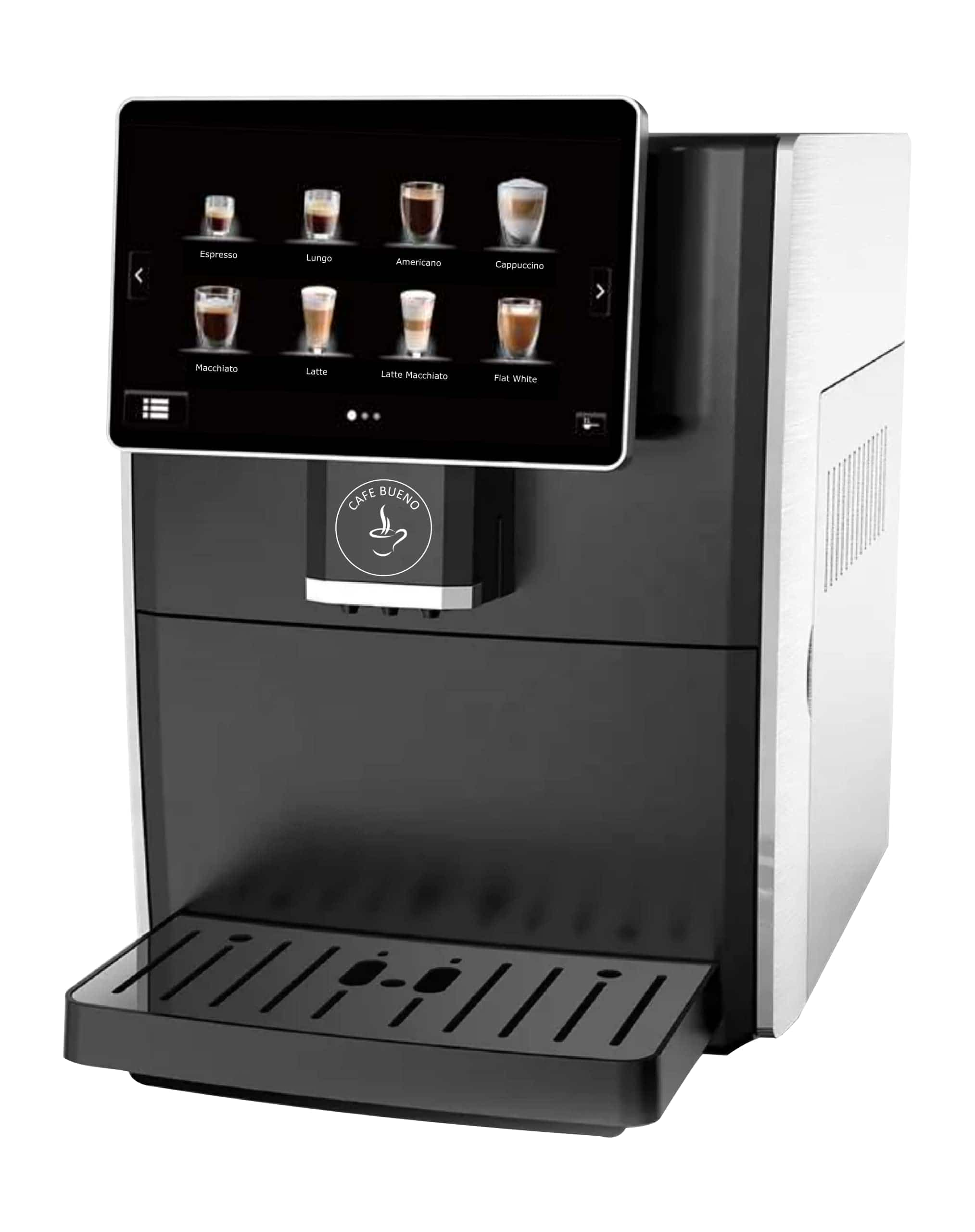
 Espresso Machines Reviews3 weeks ago
Espresso Machines Reviews3 weeks agoCafe Bueno Super Automatic Espresso Machine Review (2025)
-
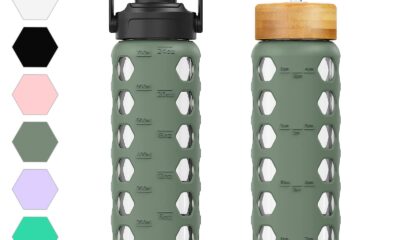
 Cappuccino Oracle Selected Reviews2 weeks ago
Cappuccino Oracle Selected Reviews2 weeks agoBest Glass Water Bottles for Eco-Friendly Hydration [2025]







